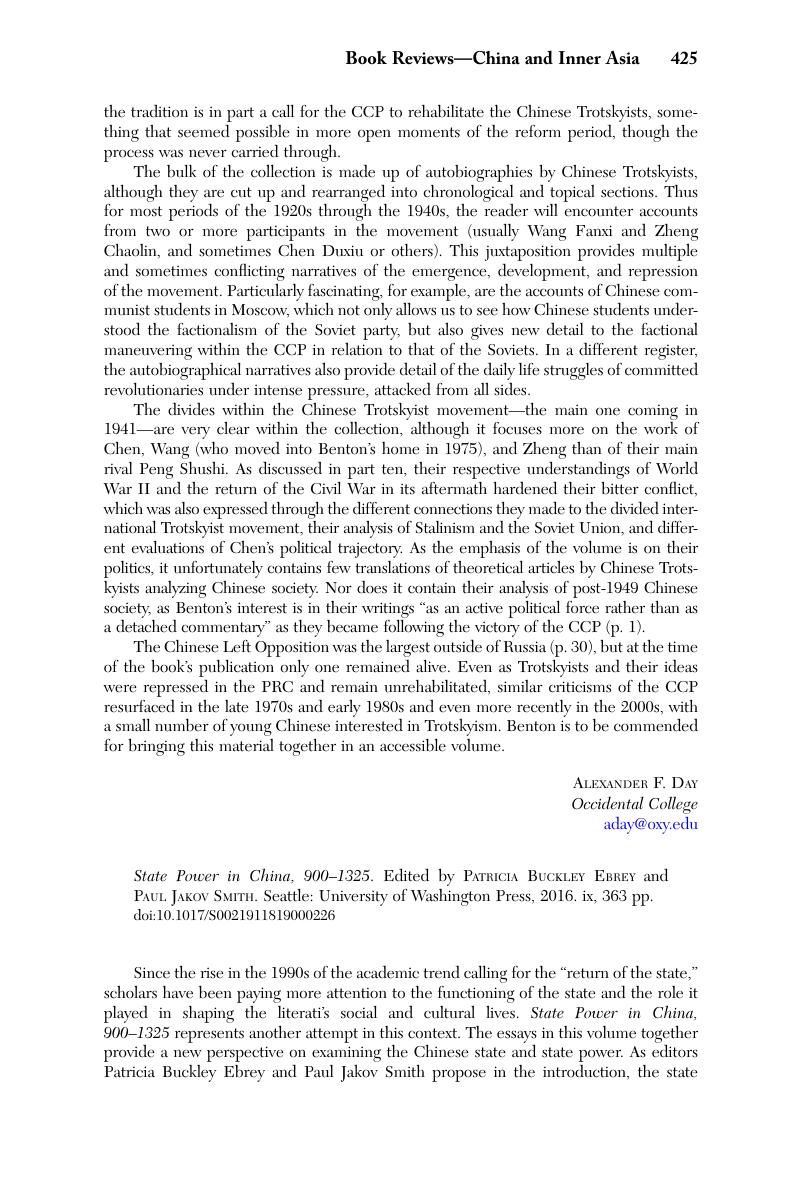No CrossRef data available.
Article contents
State Power in China, 900–1325. Edited by Patricia Buckley Ebrey and Paul Jakov Smith. Seattle: University of Washington Press, 2016. ix, 363 pp.
Review products
Published online by Cambridge University Press: 10 May 2019
Abstract

- Type
- Book Reviews—China and Inner Asia
- Information
- Copyright
- Copyright © The Association for Asian Studies, Inc. 2019
References
1 Robert Hymes has a similar understanding of the state as a collection of inconsistent projects advocated by a diverse group of power players. See Robert Hymes, review of “Dividing the Realm in Order to Govern”: The Spatial Organization of the Song State (960–1276 CE), by Ruth Mostern, Harvard Journal of Asiatic Studies 73, no. 2 (2013): 361–77.
2 Hartwell, Robert M., “Demographic, Political, and Social Transformations of China, 750–1550,” Harvard Journal of Asiatic Studies 42, no. 2 (1982): 365–442Google Scholar; Hymes, Robert P., Statesmen and Gentlemen: The Elite of Fu-Chou Chiang-Hsi, in Northern and Southern Sung (Cambridge: Cambridge University Press, 1986)Google Scholar.
3 Bossler, Beverly J., Powerful Relations: Kinship, Status, and the State in Sung China (960–1279) (Cambridge, Mass.: Council on East Asian Studies, Harvard University, distributed by Harvard University Press, 1998), 93–94CrossRefGoogle Scholar.
4 See, e.g., their shared commitment to “classical analogism” as proposed by Glahn, Richard von, “Community and Welfare: Chu Hsi's Community Granary in Theory and Practice,” in Ordering the World: Approaches to State and Society in Sung Dynasty China, eds. Hymes, Robert P. and Schirokauer, Conrad (Berkeley: University of California Press, 1993), 221–55Google Scholar, esp. 251–52.
5 See, e.g., Wang Bo's challenge to Zhu Xi's economic activism in Lee, Sukhee, “Making Sense of the Master: Wang Bo's ‘Localization’ of Neo-Confucianism in the Late Southern Song,” T'oung Pao 99, no. 1/3 (2013): 140–72CrossRefGoogle Scholar.




